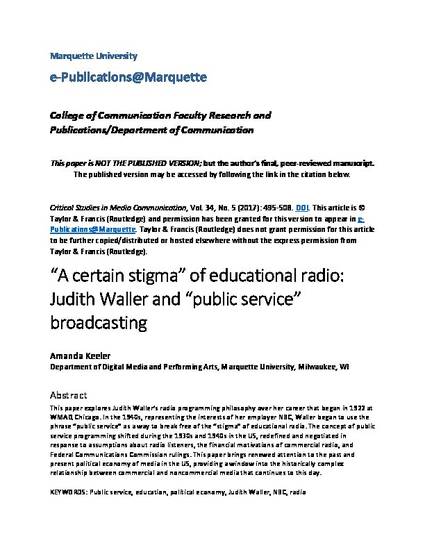
This paper explores Judith Waller’s radio programming philosophy over her career that began in 1922 at WMAQ Chicago. In the 1940s, representing the interests of her employer NBC, Waller began to use the phrase “public service” as a way to break free of the “stigma” of educational radio. The concept of public service programming shifted during the 1930s and 1940s in the US, redefined and negotiated in response to assumptions about radio listeners, the financial motivations of commercial radio, and Federal Communications Commission rulings. This paper brings renewed attention to the past and present political economy of media in the US, providing a window into the historically complex relationship between commercial and noncommercial media that continues to this day.
Available at: http://works.bepress.com/amanda-keeler/23/

Accepted version. Critical Studies in Media Communication, Vol. 34, No. 5 (2017): 495-508. DOI. © 2017 Taylor & Francis Group. Used with permission.